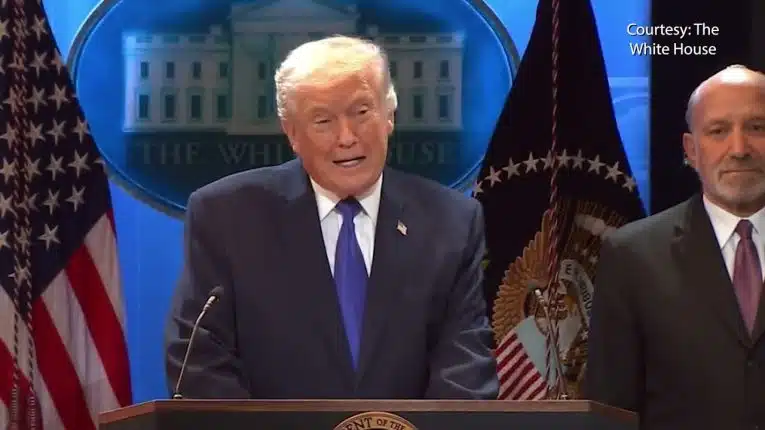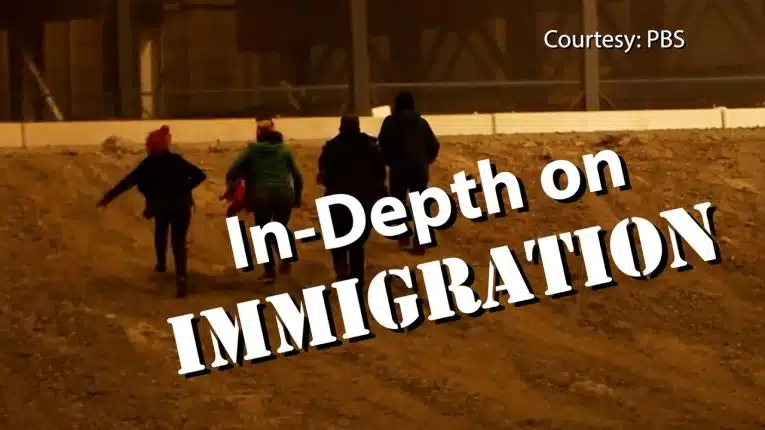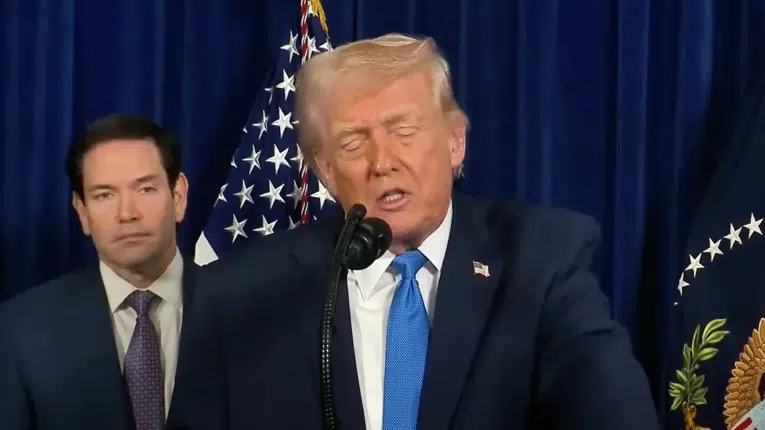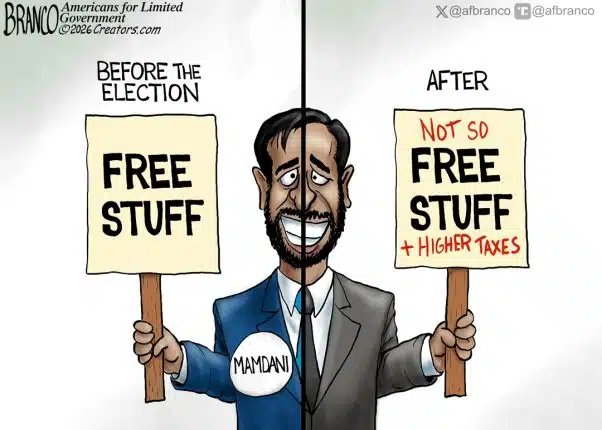National Popular Vote movement would ensure California, New York, Illinois determine presidential winners.
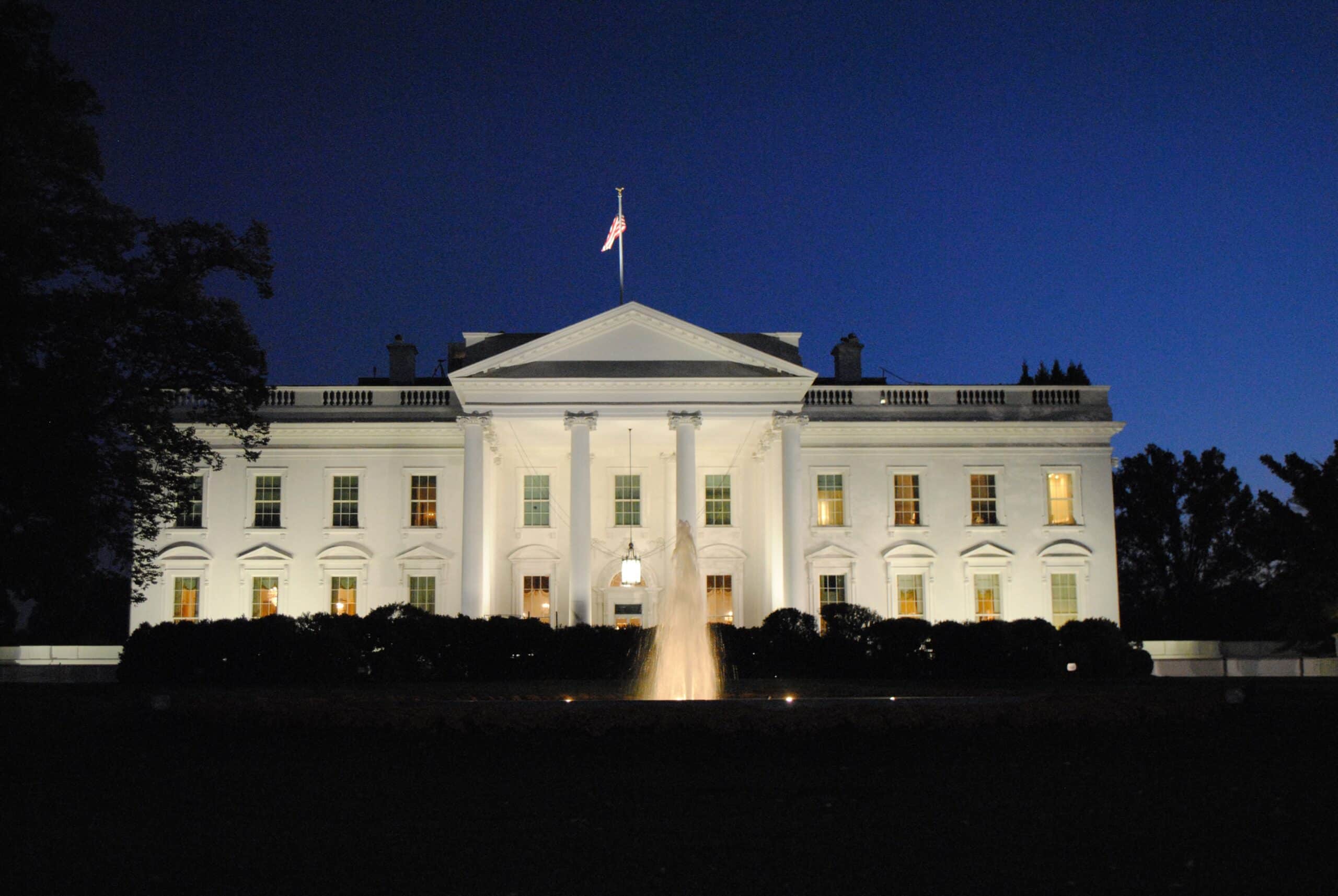
ALG News
Legislatures in all 50 states have either joined or considered joining a compact that would require them to give future presidential Electoral College votes to whichever candidate is deemed to have won the most national votes, regardless of how the state voted. Under The National Popular Vote (NPV) scheme larger states would silence the voices of Americans in less populous states.
Americans for Limited Government President Rick Manning said “The NPV scheme would shred the Constitution, deprive states of their voice in electing the president, and plunge the nation into an electoral crisis.”
Save Our States is working to stop this growing effort to nullify the Electoral College. Executive Director Trent England sat down with the ALG news teamto explain what this compact is and why you should oppose it.
ALG:When did this effort to have states give away their Electoral College votes begin?
England:It started in the 1940s with some Texas Democrats, who openly said if they could get rid of the Electoral College, they could reduce the power of minority Americans in the Democratic Party coalition. They basically singled out blacks and Jews, and organized labor. But, but over time, it became this weird coalition of Southern Democrats and sort of government reformers types on both the right and the left, making the standard argument that ‘We need more democracy and, more direct election system.’ But those efforts eventually went nowhere and it wasn’t revisited in any serious way until after the 2000 Bush-Gore presidential election.
Who is behind this push:The National Popular Vote campaign is the confluence of two things. One is a group of liberal law professors who came up with the concept of having states change their laws, to give away their electoral votes based on the national popular vote. They came up with this very quickly after 2000, as a way to essentially nullify the Electoral College without having to go through the process of changing the Constitution. And the other side of all this is a man named John Koza from the Bay Area in California. He’s a computer scientist and professor at Stanford University. He was an Al Gore elector in California in 2000. So obviously, he comes away from that very frustrated, and looking for some way to get rid of the Electoral College, comes across this proposal. And right off the bat says, ‘I’m going to turn this into a campaign. I’m going to put millions of my own dollars behind it.’ So he and some of his wealthy California friends are bankrolling it.
ALG: After Hillary Clinton’s defeat in 2016, did the movement gain strength?
England:Yes. They saw their margins in California, in particular and realized all they had to do really was turn out more votes in Los Angeles and New York City, and they could win the presidency under their plan.
ALG:Is this scheme constitutional?
England:It’s an idea so dumb that James Madison never worried about it. The Founders never thought a state would give away their own power. And so there’s no prohibition in the Constitution. But I think it is unconstitutional because it violates the structure and the purpose behind the Electoral College. And it also would modify the balance of power between the small and large states that’s created by the U.S. Senate and the way that that was in the Electoral College.
ALG:This seems like a straight up power grab.
England:It is. If you draw your political support from big cities, and you want to consolidate your power. I mean, this is a no brainer, right? It would shift so much political power to the cities and would really revive big city political machines in a way that almost nothing else could.
ALG:Even one of the men who helped design this scheme is warning that it could cause an electoral crisis, because it is so poorly constructed.
England:Yes. The NPV compact is so poorly constructed it risks causing an electoral crisis. There is no official ‘national popular vote’ count. States that join the compact are supposed to accept vote totals from every other state even if they are disputed, inaccurate, incomplete, or the result of fraud or vote suppression.
ALG:Clearly this is a complicated issue with a lot to understand. Where can someone go to learn more about the Electoral College and why it is worth protecting?
England:Visit our website, Save Our States or check out our video, Safeguard: An Electoral College Story


